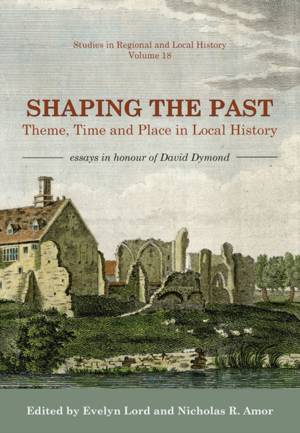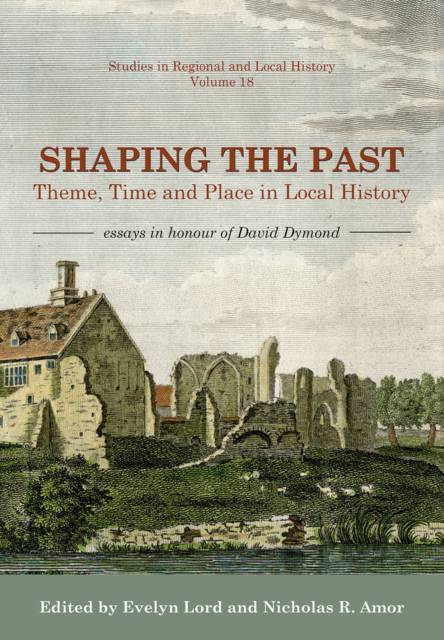
- Retrait gratuit dans votre magasin Club
- 7.000.000 titres dans notre catalogue
- Payer en toute sécurité
- Toujours un magasin près de chez vous
- Retrait gratuit dans votre magasin Club
- 7.000.0000 titres dans notre catalogue
- Payer en toute sécurité
- Toujours un magasin près de chez vous
Shaping the Past
Theme, Time and Place in Local History - Essays in Honour of David Dymond
60,45 €
+ 120 points
Description
Dr David Dymond is a Vice President of the British Association for Local History and of the Suffolk Institute of Archaeology and History, President of the Suffolk Records Society, and an honorary fellow of the University of East Anglia. The author of several
valued books about the practice of local history, his contribution to the study of local history generally, and in his adopted county of Suffolk in particular, has been immensely influential. The essays in this Festschrift are offered as a token of esteem and affection by colleagues, friends, and students of David. They consist of new research on aspects of local history from the medieval period to the twentieth century, with a particular focus on Eastern England. Taken together, they illustrate David's philosophy of local history (that it should be 'wide ranging, inclusive, integrating, and interdisciplinary'). These essays, in turn, aim to reflect the values that have always characterised David's approach: a focus on primary sources meticulously interrogated and a concern to avoid the pitfalls of parochialism by remaining sensitive to the wider influences upon communities. The very varied contributions to this collection aptly reflect the breadth and depth of David Dymond's own scholarship whilst offering a rich choice of material to anyone with an interest in local history.
valued books about the practice of local history, his contribution to the study of local history generally, and in his adopted county of Suffolk in particular, has been immensely influential. The essays in this Festschrift are offered as a token of esteem and affection by colleagues, friends, and students of David. They consist of new research on aspects of local history from the medieval period to the twentieth century, with a particular focus on Eastern England. Taken together, they illustrate David's philosophy of local history (that it should be 'wide ranging, inclusive, integrating, and interdisciplinary'). These essays, in turn, aim to reflect the values that have always characterised David's approach: a focus on primary sources meticulously interrogated and a concern to avoid the pitfalls of parochialism by remaining sensitive to the wider influences upon communities. The very varied contributions to this collection aptly reflect the breadth and depth of David Dymond's own scholarship whilst offering a rich choice of material to anyone with an interest in local history.
Spécifications
Parties prenantes
- Editeur:
Contenu
- Nombre de pages :
- 256
- Langue:
- Anglais
- Collection :
Caractéristiques
- EAN:
- 9781912260225
- Date de parution :
- 01-10-20
- Format:
- Livre relié
- Format numérique:
- Genaaid
- Dimensions :
- 171 mm x 248 mm
- Poids :
- 630 g

Les avis
Nous publions uniquement les avis qui respectent les conditions requises. Consultez nos conditions pour les avis.





